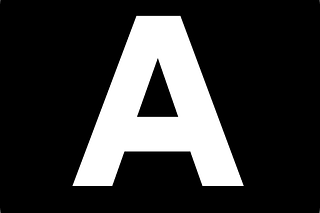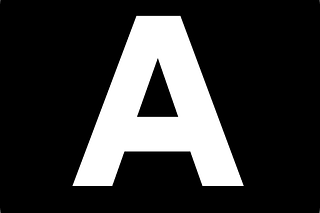
Discover more from User Experiences that Matter
Books that helped me grow
A couple of weeks ago, I was on a coaching call with Matt. At the end of the call, he asked me to recommend some of my favorite books on the topic of UX and design. While I was happy to recommend the usual suspects, I realized the reading I generally do isn't particularly related to UX or design, but still influences my thinking on a very deep level. I didn't gave Matt a great answer by the end of that call, but still wanted to answer the question to the fullest. So, here's my latest reading list along with some of my takeaways on both a personal and professional level.
My reading process
Years ago, I decided to change my reading process. I was mostly buying physical books and was never really sure what to do with them after I was finished. Seeing as most of them shipped from the United States, I also wanted to change my process to minimize the environmental impact. Additionally, I wanted a better way of highlighting sections and being able to search them at a later time. This lead me to read mainly on a Kindle, but the process of syncing notes from the Kindle was too cumbersome. So about a year ago I decided to switch all of my reading to my iPad and iPhone. At one point I had an iPad mini almost entirely dedicated for reading, but eventually changed it for an iPad Pro. Using iBooks (Apple Books?) I can easily share notes to Notes (euhm, so my highlights go to an app called Notes). Reading progress is synced perfectly across devices as is my library. Books are generally about the same price in iBooks Store (Apple Books Store?) as on Amazon. So... onto the books!
The usual suspects
There are a couple of books on design and user experience that I highly recommend in case you haven't already read them. If you've read any list of suggested books for designers, you've surely come across many of these already.
The design of everyday things - Don Norman - Amazon
Description copied from Goodreads: "Anyone who designs anything to be used by humans -- from physical objects to computer programs to conceptual tools -- must read this book, and it is an equally tremendous read for anyone who has to use anything created by another human. It could forever change how you experience and interact with your physical surroundings, open your eyes to the perversity of bad design and the desirability of good design, and raise your expectations about how things should be designed."
If that doesn't sell it, I'm out of words.
The elements of User Experience - Jesse James Garrett - Amazon
I often quote this book when talking about what a user experience really is.
Shape Up - Ryan Singer
Fascinating insight into how Basecamp works - how they decide what to build, how to scope it, and how to actually go about building it. It's available for free online.
It's not how good you are, it's how good you want to be - Paul Arden - Amazon
For an industry that sometimes seems obsessed with failing (especially failing fast and often), we're not especially good at owning up to failing, at least not until we've succeeded. Then it's perfectly fine to talk about your first 1000 failures, right?
The perosn who doesn't make mistakes is unlikely to make anything.
Factfulness - Hans Rosling - Amazon
Everyone should read this book. As for designers, it's crucial to understand how much of your thinking is, in fact, biased. If you're reading one book from this list, I'd suggest it's this one.
Also worth mentioning:
Zero to One - Peter Thiel - Amazon
Start with Why - Simon Sinek - Amazon
Rework - Jason Fried and David Heinemeier Hansson - Amazon
Design is a Job - Mike Monteiro - A book apart
Recently read (and enjoyed)
The Making of a Manager - Julie Zhuo - Amazon
After writing about becoming a UX-lead, many people asked me about the role as it's something they're about to transition into. Julie's book was one of the books I read during my transition that didn't necessarily bring me all of the answers I was looking for, but it did bring me something more important - a calmness.
“I’m by no means a management expert. I’ve learned largely by doing, and despite my best intentions, I’ve made countless mistakes. But this is how anything in life goes: You try something. You figure out what worked and what didn’t. You file away lessons for the future. And then you get better. Rinse, repeat.”Julie Zhuo - “The Making of a Manager”
Hell Yeah or No - Derek Sivers - Derek Sivers
Derek's premise is simple; unless you go "Hell Yeah!" about a decision you should say no. It's hard in practice, but very impactful. At less than 100 pages, this is a very solid read packed with great advice and thinking. So much of this is incorporated into how I work.
“People say that your first reaction is the most honest, but I disagree. Your first reaction is usually outdated. Either it’s an answer you came up with long ago and now use instead of thinking, or it’s a knee-jerk emotional response to something in your past”
Hourly Billing is Nuts - Jonathan Stark - Jonathan Stark
I'm still working to move more projects away from hourly billing, but this is surprisingly difficult. Jonathan's book is extremely inspiring in how he lays out the options and reasons to move away from hourly billing.
Hourly billing misaligns the direct financial incentives between you and your client (i.e., the longer the project takes, the better it is for you and the worse it is for the client). This creates trust fractures which erode the relationship over time if your estimates are not accurate. This erosion manifests itself as questioning hours, micromanagement, and lack of testimonials/referrals.
Hourly billing allows you to get started before knowing your client’s goal. It’s a classic example of “Something must be done! We’re doing something! Something has been done!” Consider this: If you don’t have a goal, you can’t succeed. If you can’t succeed, you must fail. If you fail, your client will regret their decision to hire you.Hourly billing is nuts
The Courage to be Disliked - Ichiro Kishimi and Fumitake Koga - Amazon
This book has surely been one of the most impactful reads I've had in a long time - if not ever. It's something I've struggled with for most of my life - seeking assurance and confirmation from others. One a broader note, I believe many of these lessons apply to building products.
“The courage to be happy also includes the courage to be disliked.”
The Growth Handbook by Intercom
It's not a growth handbook in it's usual form - you know, add some overlays, a few huge CTA's, and some dark patterns then you'll be on your way to millions of users. Quite the opposite, it's about taking a more meaningful approach to growth. You can get this for free from Intercom.
“There’s a silly old business expression that says: “We’re going to lose a dollar on every deal, but we’ll make it up in volume.” It is also an extremely common way that venture-funded businesses think about how to grow.”The Growth Handbook
No Hard Feelings - Liz Fosslien and Mollie West Duffy - Amazon
I think most of us have worked with people who overshare just as often as we've worked with people who never show any feelings at all. While none of these two extremes might be a healthy long term option, striking a balance can be easier said than done. This books helps you find that balance. Even better, it's humorous and has cute illustrations.
"If you feel unmotivated by your job, it's time for some tough love: you've probably given up on learning."
The Power of Habit - Charles Duhigg - Amazon
Much like Hooked: How to Build Habit-Forming Products by Nir Eyal, this book explains the basic theory on how habits operate and how they're created. What I like about Charles' book is that it's looks at habits on a broader level. While Nir's books primarily focuses on how to design digital products that create habits in users (or addictions), Charles looks at how we can use habits in our daily life and how they are the keys to success.
Champions don’t do extraordinary things Dungy would explain. They do ordinary things, but they do them without thinking, too fast for the other team to react. They follow the habits they’ve learned.The Power of Habit
What I'm reading now
Radical Candor - Kim Scott - Amazon
I'm (as you probably can tell by now) fascinated about how great teams are formed and how to nurture them. Kim Scott's book is one of the most fascinating books I've read on this topic. I've also spent a lot of time thinking back to all the different teams I've been on and what I believe made some teams flourish and others to go stale. In all cases, the leader of the team played a crucial part (in either direction).
“Ultimately, though, bosses are responsible for results. They achieve these results not by doing all the work themselves but by guiding the people on their teams. Bosses guide a team to achieve results.”Radical Candor
Next up
These are books I've already bought (I've actually started Traffic Secrets, I tend to read 2-3 books at a time).
Adventures in opting out - field guide to leading an intentional life - Cait Flanders - Amazon
Traffic Secrets - Russell Brunson - Amazon
How to be an Antiracist - Ibram X Kendi - Amazon
Inspiration is everywhere
So as you can see, most books I've read aren't about design or user experience, but about something I've always valued higher - how to work well together. I think this is a lesson earned from my time at Hyper Island where the emphasis was always on teamwork rather than learning the practicalities like the latest tools.
What books have you read lately that has influenced your thinking?
Subscribe to User Experiences that Matter
I write a newsletter every two-four weeks. I'll let you decide if it’s any good but people seem to stay on. In fact, thousands of smart people incl. designers from Amazon, IDEO, Figma and Shopify are subscribers.








